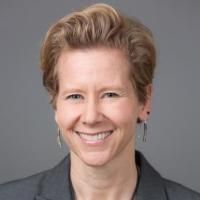Seminary Students and Physical Health: Beliefs, Behaviors, and Barriers.
Date
2022-04
Journal Title
Journal ISSN
Volume Title
Repository Usage Stats
views
downloads
Citation Stats
Abstract
As an occupational group, clergy exhibit numerous physical health problems. Given the physical health problems faced by clergy, understanding where physical health falls within the priorities of seminary students, the ways students conceptualize physical health, and how seminary students do or do not attend to their physical health in the years immediately prior to becoming clergy, can inform intervention development for both seminary students and clergy. Moreover, understanding and shaping the health practices of aspiring clergy may be particularly impactful, with cascading effects, as clergy serve as important role models for their congregants. Drawing on 36 in-depth, qualitative interviews with first-year seminary students, this study examines the complex dynamics between religious frameworks related to physical health, explicit intentions to maintain healthy practices, and reported physical health behaviors. Our findings suggest that even students who deploy religious frameworks in relation to their physical health-and who, as a result, possess positive intentions to implement and maintain healthy behaviors-often report being unable to live up to their aspirations, especially in the face of barriers to health practices posed by the seminary program itself. After reviewing these findings, we offer suggestions for physical health focused interventions, including action and coping planning, which could be implemented at seminaries to reduce the intention-behavior gap and improve clergy health.
Type
Department
Description
Provenance
Subjects
Citation
Permalink
Published Version (Please cite this version)
Publication Info
Johnston, Erin F, David E Eagle, Amy Corneli, Brian Perry and Rae Jean Proeschold-Bell (2022). Seminary Students and Physical Health: Beliefs, Behaviors, and Barriers. Journal of religion and health, 61(2). pp. 1207–1225. 10.1007/s10943-021-01480-7 Retrieved from https://hdl.handle.net/10161/32069.
This is constructed from limited available data and may be imprecise. To cite this article, please review & use the official citation provided by the journal.
Collections
Scholars@Duke

Erin Johnston

David E Eagle
I am an Assistant Research Professor the Center for Health Policy and Inequalities Research and the Duke Global Health Institute. I am an expert on the health of religious clergy, the changing shape of churches in North American society, and the implications of these trends for the professional training of ministers.
More recently, my research has begun to branch out internationally. I am doing research on clergy in the Eastern Democratic Republic of the Congo, and studying the mental health of sexual and gender minorities around the world.
Methodologically, I am skilled in the collection and analysis of survey data, including longitudinal and social network data.

Amy Lynn Corneli
Dr. Amy Corneli, a social scientist by training, conducts qualitative, mixed-method, intervention, and implementation science research. Her work spans the U.S. and multiple countries in sub-Saharan Africa, the Middle East, and South and Southeast Asia. She has a history of collaborating with and learning from community organizations and representatives in conducting research with populations that face discrimination, bias, or unequal treatment within the healthcare system and society due to race, ethnicity, gender, sexual orientation, or socioeconomic status. Her collaborative research often focuses on generating synergies between the creativity of art and the analytical thinking of science. The findings from her research inform clinical trials and practice, socio-behavioral interventions, guideline development, and the practical dissemination of proven interventions.
Dr. Corneli's current research portfolio encompasses three areas:
- Leading, co-leading, mentoring, and supporting qualitative, mixed-methods, and implementation science research in HIV prevention.
- Serving as a methodological investigative partner on qualitative, mixed-methods, and intervention research on a variety of health conditions and topics with faculty in the School of Medicine at Duke University.
- Leading the social science team for the Clinical Trials Transformation Initiative, a public-private initiative between Duke University and the U.S. Food and Drug Administration.
Dr. Corneli is also the:
- Founder and Director of QualCore, a group of PhD- and master-level social scientists who partner with Duke faculty to provide scientific direction and interviewing and analysis expertise in qualitative research.
- Co-founder and Director of The BASE (Bioethics and Stakeholder Engagement) Lab, a group of faculty and staff that partner with clinical investigators at Duke to conduct research with key contributors to inform the planning, conduct, interpretation, and reporting of clinical research.
- Director of the Duke CFAR Social and Behavioral Sciences Core.
QualCore | https://populationhealth.duke.edu/research/qualcore
The BASE Lab | https://populationhealth.duke.edu/research/base-lab
Duke CFAR Social and Behavioral Sciences Core | https://cfar.duke.edu
Clinical Trials Transformation Initiative | https://www.ctti-clinicaltrials.org
Prior to joining Duke University, Dr. Corneli was engaged in biomedical HIV prevention research at FHI 360 for 10 years.

Rae Jean Proeschold-Bell
Rae Jean Proeschold-Bell is interested in the interplay between mental and physical well-being and has designed and tested interventions that integrate care for people with obesity and depression; HIV/AIDS and substance use; and hepatitis C and alcohol use.
Most recently, Rae Jean has been studying positive mental health as a way to prevent depression and promote caring for one's physical health. Her work currently focuses on caregivers, including clergy in North Carolina and caregivers of orphaned and vulnerable children in Kenya, Ethiopia, India, and Cambodia.
Soon, she will be testing four interventions to reduce stress symptoms.
As someone trained in both clinical and community psychology, Rae Jean is interested in the impact of systems and environmental contexts on individuals.
Unless otherwise indicated, scholarly articles published by Duke faculty members are made available here with a CC-BY-NC (Creative Commons Attribution Non-Commercial) license, as enabled by the Duke Open Access Policy. If you wish to use the materials in ways not already permitted under CC-BY-NC, please consult the copyright owner. Other materials are made available here through the author’s grant of a non-exclusive license to make their work openly accessible.
